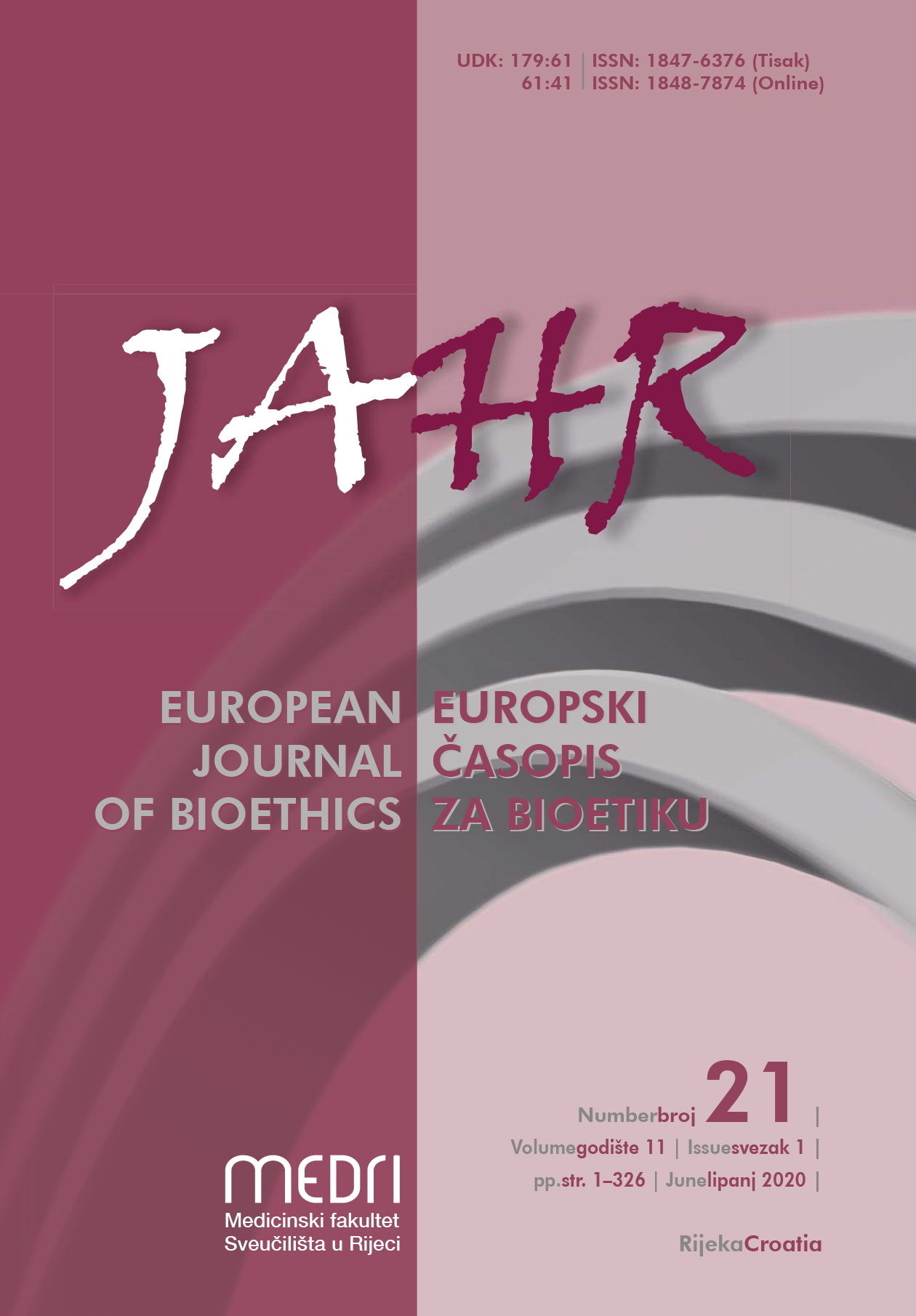Is the Croatian Medical Law in Harmony with the International Comparative Standards on the Right to self-determination?
The Example of Jehovah’s Witnesses Patients
Keywords:
Jehovah’s Witnesses, blood transfusion, choice of treatment, emergency treatment, patient rights, personal autonomy, informed consent, advance medical directive, physicians, conscience, malpractice, medical liability, religion and medicine, Croatia, European Court of Human Rights, jurisprudence, legislation, ethics, comparative law.Abstract
Are Jehovah’s Witnesses (JW) outstanding patients? One might answer by the affirmative. Isn’t their refusal of blood transfusions, a treatment traditionally considered as a life-saving treatment, problematic both from the medical and legal viewpoint? But, traditions are not everlasting. Both modern medical science and legal standards have greatly improved during the last two decades. Over the last few years, JW medical choice has become standard treatment for many physicians specialized in bloodless surgeries. From the legal standpoint, laws and case-law worldwide has been moving in the same direction: a patient endowed with discernment has the absolute right to choose the treatment he/she deems the most appropriate according to his/her own personal values. In the light of this evolution worldwide, JW patients have become ordinary patients.
Since this is not the case in Croatia yet, this article seeks to put the Croatian legislation in harmony with the international standards by using the example of JW. It does so by answering five fundamental questions: 1) Should a JW patient be forced to undergo a blood transfusion against his or her will? 2) Should a JW patient be forced to undergo a blood transfusion in an emergency situation where life is at risk and the patient is unconscious? 3) Can a doctor refuse to treat a JW patient because the patient refuses to accept a treatment deemed life-saving? 4) Can a doctor be held liable for respecting a JW patient’s wishes if the patient dies? 5) Can a doctor be held liable for overriding a JW patient’s wishes and administering a blood transfusion by force?
Downloads
Published
Issue
Section
License
Authors who publish with this journal agree to the following terms:
- Authors retain copyright and grant the journal right of first publication with the work simultaneously licensed under a Creative Commons Attribution License that allows others to share the work with an acknowledgement of the work's authorship and initial publication in this journal.
- Authors are able to enter into separate, additional contractual arrangements for the non-exclusive distribution of the journal's published version of the work (e.g., post it to an institutional repository or publish it in a book), with an acknowledgement of its initial publication in this journal.
- Authors are permitted and encouraged to post their work online (e.g., in institutional repositories or on their website) prior to and during the submission process, as it can lead to productive exchanges, as well as earlier and greater citation of published work (See The Effect of Open Access).



